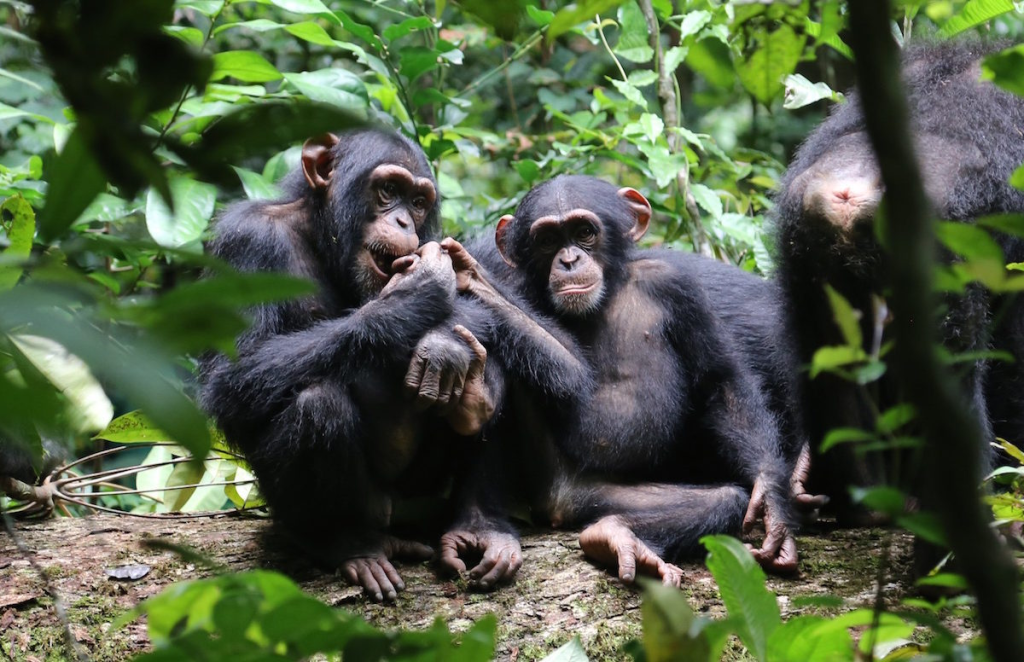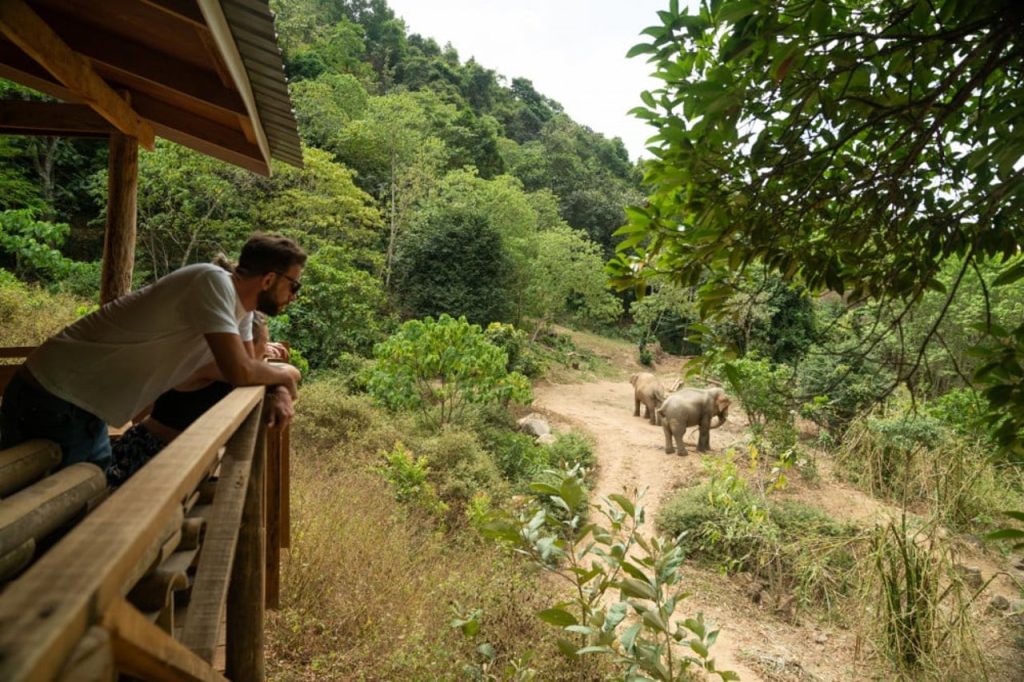Wildlife trafficking is a global challenge, with devastating impacts on biodiversity, ecosystems, and local communities. In Nigeria, the problem of illegal wildlife trade has gained increasing attention due to its role as a source, transit, and destination country for trafficked wildlife and wildlife products.
Nigeria’s position as a major hub for the illicit trade of endangered species has dire consequences for wildlife conservation, environmental sustainability, and the well-being of vulnerable ecosystems. Despite significant efforts by both national and international stakeholders, wildlife trafficking remains a critical issue in Nigeria, which must be tackled from multiple angles.
Why is Wildlife Trafficking a Problem?
Wildlife trafficking is a major problem for several reasons. First and foremost, it threatens biodiversity. Nigeria is home to several species of wildlife, some of which are critically endangered, such as the African elephant, pangolins, and the Nigerian-Cameroon chimpanzee.
These species are often targeted by traffickers due to the high demand for their parts—whether for medicinal use, luxury goods, or traditional practices. This demand leads to the rapid depletion of populations and increases the risk of extinction for some species.
Second, wildlife trafficking fuels organized crime. In Nigeria, illegal wildlife trade is frequently linked to international criminal networks that operate across borders. These criminal organizations exploit the porous borders and weak enforcement structures, often operating with little fear of significant repercussions.
The illicit trade in wildlife not only generates immense profits for traffickers but also supports other forms of organized crime, including arms trafficking and human trafficking.
In addition, the corruption that exists in many of the countries involved in wildlife trafficking—Nigeria included—creates a favorable environment for these criminal enterprises to thrive.
Wildlife trafficking is a major economic and social issue. The trade in endangered species, often driven by poverty, corruption, and lack of awareness, disrupts local communities and traditional livelihoods.
In rural areas where communities may rely on wildlife resources for sustenance and income, wildlife trafficking can exacerbate poverty and social instability. Moreover, wildlife trafficking can undermine national economies that depend on tourism, particularly eco-tourism, which is a significant source of revenue for many African countries.

How Does Wildlife Trafficking Affect the Environment and Ecosystem?
The consequences of wildlife trafficking are far-reaching and extend well beyond the immediate harm to the animals involved. As traffickers target key species in ecosystems, they disrupt the balance of those ecosystems, leading to unintended consequences for other species and the environment as a whole.
One of the most direct impacts of wildlife trafficking is the destruction of biodiversity. The removal of species from ecosystems, particularly those that play vital roles such as seed dispersal, pollination, or maintaining the balance of predator-prey relationships, can have devastating effects.
For instance, the illegal poaching of elephants for their ivory has significant consequences for the species’ survival, and their absence can lead to a breakdown in ecosystem dynamics. Elephants are considered a “keystone” species because of their role in shaping their environment by preventing overgrowth of certain vegetation, which can impact the entire ecosystem.

Similarly, the illegal trade in pangolins, which are trafficked for their scales and meat, contributes to the decline of their populations. Pangolins are considered a vital part of the ecosystem as they regulate insect populations, particularly ants and termites, which can otherwise become pests. By removing these creatures from the environment, wildlife trafficking destabilizes ecosystems and contributes to the spread of diseases in some cases.
Beyond direct environmental impacts, the disruption caused by wildlife trafficking hampers efforts to combat climate change and preserve natural resources.
The depletion of wildlife can result in changes to vegetation patterns, which in turn affects the carbon storage capacity of forests. This creates a feedback loop that exacerbates the challenges associated with climate change, as the loss of biodiversity weakens the resilience of ecosystems to environmental changes.
How Effective is the National Strategy for Combating Wildlife Trafficking?
In response to the growing crisis of wildlife trafficking, Nigeria has developed a National Strategy for Combating Wildlife and Forest Crime, which outlines the government’s approach to tackling the problem between 2022 and 2026. The strategy emphasizes a comprehensive approach involving law enforcement, policy reform, capacity building, and international cooperation.
One key component of Nigeria’s national strategy is strengthening law enforcement. Nigeria Customs Service (NCS), which plays a central role in wildlife trafficking enforcement, has made significant strides in tackling the issue in recent years.
Prior to 2021, Nigeria was largely regarded as a major hub for wildlife trafficking, with few successful prosecutions or convictions. However, in the years since, the NCS has seen a marked improvement in its ability to detect and intercept illegal wildlife products.
In October 2024, 13 individuals had been convicted for wildlife trafficking, and over 50 individuals were arrested and undergoing prosecution. This represents a substantial shift in the effectiveness of law enforcement in Nigeria.
The establishment of the Special Wildlife Office in 2021 is another major step forward. The unit is specifically dedicated to tackling wildlife trafficking, with officers receiving specialized training in species identification, enforcement techniques, and investigative skills.
The NCS has also forged valuable partnerships with international organizations such as the United Nations Office on Drugs and Crime (UNODC), the World Customs Organization (WCO), and the International Consortium on Combating Wildlife Crime (ICCWC), which have provided technical expertise and resources to bolster enforcement capabilities.
Despite these positive developments, challenges remain. While the government’s commitment to wildlife protection is evident, the enforcement of laws is often inconsistent, and corruption remains a persistent problem. Traffickers are still able to exploit weaknesses in Nigeria’s legal framework and evade prosecution.
Additionally, much of the country’s wildlife trafficking problem is linked to organized criminal syndicates, which operate with impunity and have considerable influence over local authorities. To overcome these challenges, Nigeria’s strategy must focus on improving coordination among national agencies, providing further training for enforcement officers, and strengthening legal frameworks for wildlife protection.

How Can Legal Wildlife Trade Benefit Africa?
While much of the discourse on wildlife trafficking focuses on the illegal aspects of the trade, there is a growing recognition of the potential benefits of legal wildlife trade for African economies. Legal wildlife trade, when properly regulated and managed, can provide substantial economic benefits while simultaneously promoting conservation efforts.
In Africa, legal wildlife trade can be a source of income for local communities. Sustainable and well-regulated wildlife trade can create jobs in industries such as eco-tourism, wildlife farming, and sustainable harvesting. For example, the trade in sustainably harvested timber or non-endangered animal products such as honey or medicinal plants can provide communities with a stable source of income, reducing the incentive to engage in illegal wildlife trafficking.
Furthermore, legal wildlife trade can contribute to conservation efforts by generating revenue that can be reinvested into wildlife protection programs.
Eco-tourism, in particular, is a growing sector that supports the conservation of species and habitats. By promoting legal and sustainable wildlife trade, countries can encourage responsible stewardship of natural resources and ensure the long-term survival of endangered species.

However, for legal wildlife trade to be beneficial, it must be closely regulated to prevent exploitation and over-exploitation of vulnerable species. CITES (the Convention on International Trade in Endangered Species of Wild Fauna and Flora), which Nigeria signed in 1974, plays a crucial role in ensuring that international wildlife trade is conducted sustainably. By ensuring that wildlife trade is legal, traceable, and sustainable, African countries can maximize the economic benefits of wildlife while safeguarding biodiversity.
- RELATED ARTICLE: Birdwatching in Nigeria: A Guide to Avian Diversity
- For Firsthand Information, Join the ScienceNaija channel on WhatsApp



